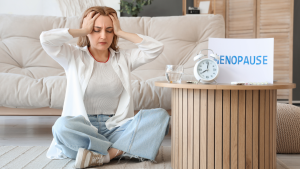Endometriosis is a condition that affects many women, but not everyone knows about it. It’s important to raise awareness because it can greatly impact women’s lives. This article will explain endometriosis, its symptoms, and the available treatments.
What is Endometriosis?
Endometriosis happens when tissue like the lining inside the uterus starts to grow outside the uterus. This tissue can be found on the ovaries, fallopian tubes, and other body parts. It can cause pain, heavy periods, and other problems.
Endometriosis Symptoms
One of the main signs of endometriosis is pain. Women with this have very painful periods. They might also feel pain in their lower belly, back, or during sex. Other signs include heavy bleeding, feeling tired all the time, and trouble getting pregnant. Some women might have stomach issues like diarrhea, constipation, or bloating.
How Endometriosis Affects Women’s Lives
Endometriosis can make it hard for women to do everyday activities. The pain can be so bad that they might miss work or school. It can also affect their relationships because of the pain during sex and the stress of dealing with a chronic illness. Women with endometriosis might also feel sad or anxious because of their condition.
Treatment Options for Endometriosis
There are several treatments for endometriosis. Here are five popular medications that can help:
- Ibuprofen: This over-the-counter medicine can help reduce pain and inflammation. It’s a common choice for women with mild to moderate pain.
- Naproxen: Another over-the-counter option, naproxen works similarly to ibuprofen to relieve pain.
- Birth Control Pills: These can help control the hormones that cause the growth of endometrial tissue. They can also make periods lighter and less painful.
- Gonadotropin-Releasing Hormone (GnRH) Agonists: These prescription medications can reduce the amount of estrogen in the body, which can help shrink the endometrial tissue and reduce pain.
- Progestin Therapy: This hormone therapy can stop periods and shrink endometrial growth, helping to relieve symptoms.
Spreading awareness about this condition can make a big difference in helping more women get the support they need. By learning about the symptoms and treatments available, women can take charge of their health and find relief from this silent struggle.
FAQs
- What are the main symptoms of endometriosis?
The main symptoms include painful periods, pain in the lower belly or back, pain during sex, heavy bleeding, fatigue, and trouble getting pregnant. Some women also experience stomach issues like diarrhea, constipation, or bloating. - Can endometrial growth be cured?
There is no cure for endometrial growth, but treatments are available to manage the symptoms. These treatments include medications, hormone therapy, and surgery.



